Tet Holiday 2026: Your Best Guide to Vietnamese New Year
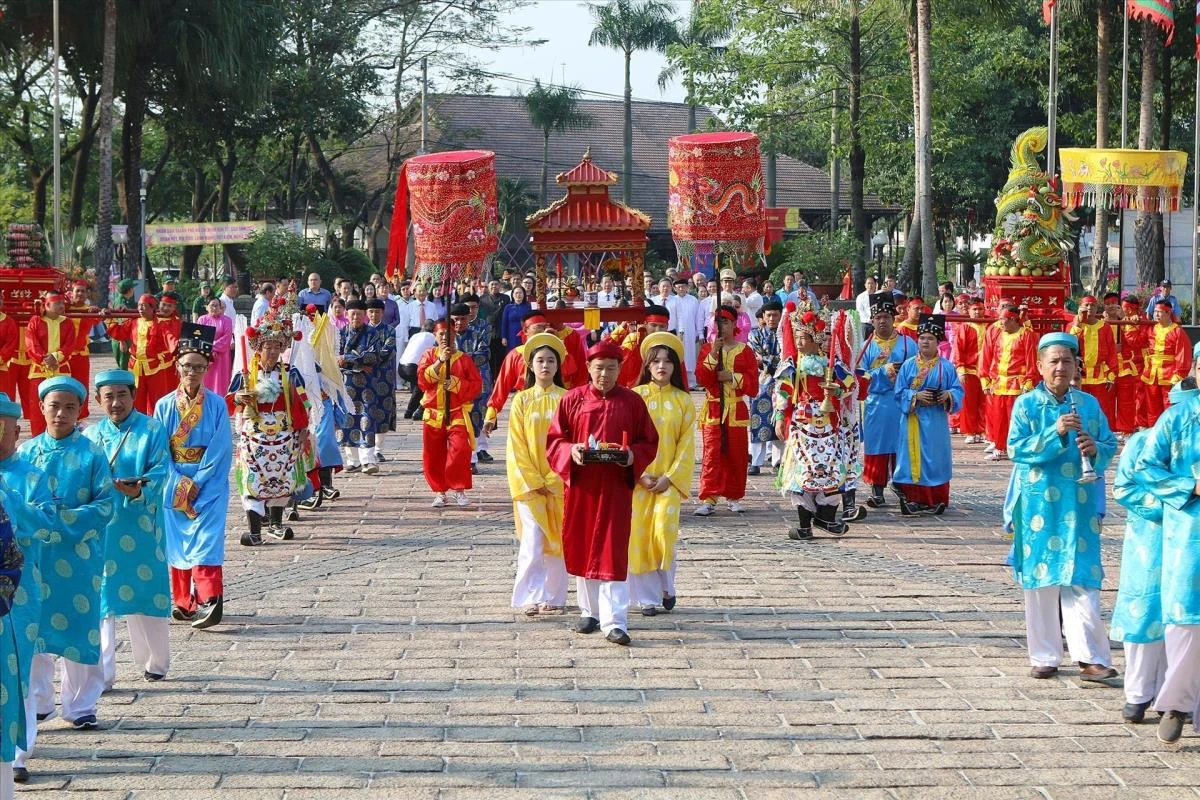
The traditional Vietnamese Tet holiday, also known as the Vietnamese Lunar New Year, is a significant cultural event in Vietnam. It is celebrated with vibrant customs, family gatherings, and traditional rituals that impress all visitors to Vietnam during Tet holiday. Discover unique Vietnamese Tet holiday traditions in this article.
Tet holiday in Vietnam, also known as the Vietnamese New Year, is a time-honored celebration that holds immense cultural significance. To know why the Tet holiday is important, read this article to understand the warmth of family reunions, the joy of gift-giving, and the rich array of traditional food on Tet holiday.
Book your trip now with us at wigotourist
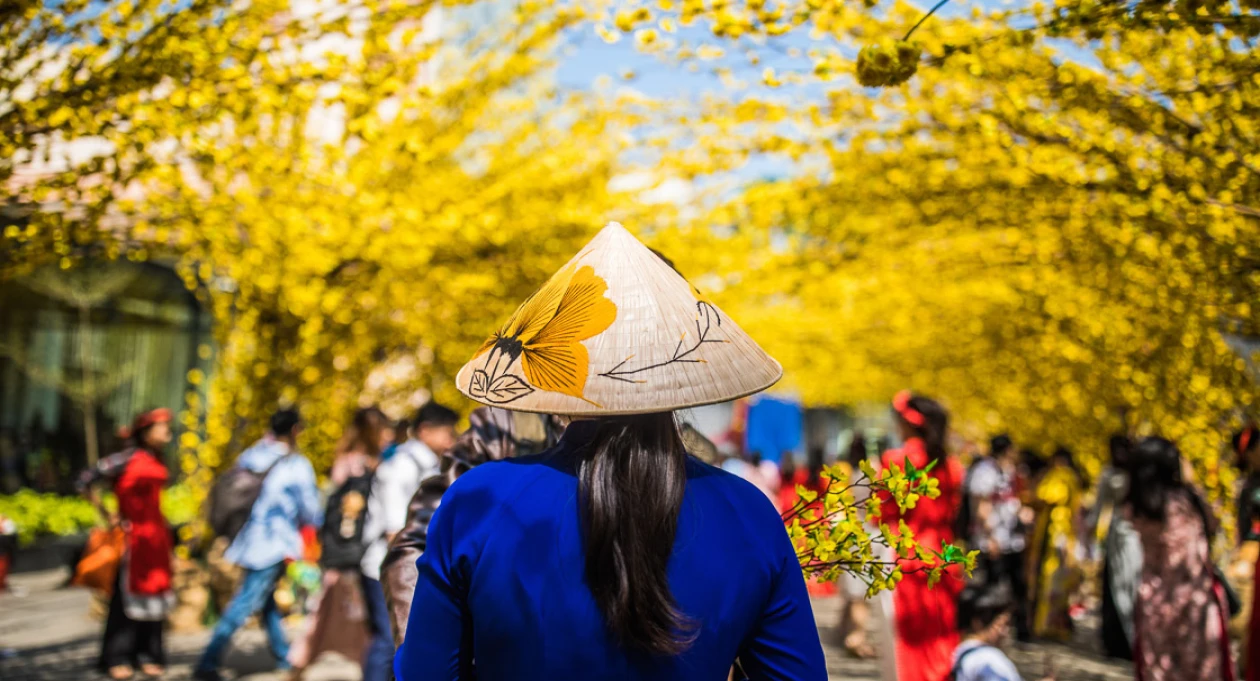
What is Tet Holiday? How long is Tet Holiday in Vietnam?
The Vietnamese New Year, known as Tet holiday, stands as the most significant festival in Vietnam among other Vietnam holidays, a nationwide celebration marking the dawn of the new year in the traditional lunar calendar. Tet holiday dates change annually but typically fall between mid-January and late February. In the upcoming year, the Tet holiday in 2026 will arrive on February 17, ushering in the Year of the Horse. In 2027, it will fall on February 6, heralding the Year of the Goat.
Tet festivities extend for three days and can span up to an entire week. The festival is subdivided into the days leading up to New Year’s Eve, New Year’s Eve itself, and the subsequent New Year’s Days. The ritual of honoring Ong Tao (the Kitchen God) on the 23rd day of the twelfth lunar month marks the inaugural event heralding the approach of Tet.
The most crucial moment unfolds at midnight on the eve of the first day of the lunar New Year. At this precise instant, families set up ancestral altars to leave behind the misfortunes of the past year and welcome the forthcoming year’s blessings. Following New Year’s Eve is the official Tet period, spanning three days. This is the time for families to come together, visit relatives, celebrate the longevity of the elderly, and offer lucky money to children. There’s a traditional saying:
- “Mùng 1 Tết Cha”: The first day is for visiting paternal relatives.
- “Mùng 2 Tết Mẹ”: The second day is for maternal relatives.
- “Mùng 3 Tết Thầy”: The third day is for paying respects to teachers.
Why is Tet Holiday so important to Vietnamese people?
The Lunar Tet holiday in Vietnam is the grandest festival among traditional celebrations. The prevailing belief affirms the purely Vietnamese heritage of the Tet celebration. According to the legend of “Banh chung banh day,” the Vietnamese people have been celebrating Tet since the time of the Hung Kings.
Tet holds profound significance for the Vietnamese people. It carries deep spiritual and emotional values, symbolizing the connection between heaven, earth, and humanity. It is a sacred occasion for bidding farewell to the old year and welcoming the new one with wishes for good health, abundance, and harmony. The Lunar New Year is also an opportunity to remember one’s roots and is an ideal time for reconciliation and resolving conflicts.
How do Vietnamese people prepare for Tet Holiday?
Preparations for the Tet holiday in Vietnam typically begin a month or 1-2 weeks in advance to ensure a prosperous start to the new year.
1. Cleaning and decorating houses
Families thoroughly clean their homes to sweep away the past year’s misfortunes. Houses are adorned with decorations like red couplets, bamboo poles, and festive flowers to create a warm, joyful atmosphere.
2. Shopping for new clothes and gifts
Shopping for new clothes, especially for children, is an exciting tradition. Markets become vibrant hubs where people buy fresh flowers, fruits, traditional foods, and gifts for family and friends to express affection and best wishes for the new year.
3. Traditional rituals before Tet
Several key customs are performed leading up to Tet:
- Kitchen God Ceremony: Making offerings to the Kitchen God on the 23rd day of the twelfth lunar month.
- Making Banh Chung: Preparing traditional Tet cakes like bánh chưng and bánh tét.
- Five-Fruit Tray: Arranging a “mâm ngũ quả” (tray of five fruits) on the family altar.
- Visiting Ancestors’ Graves: Cleaning and paying respects at ancestral tombs.
- Year-End Ceremony: Holding a “cúng tất niên” to thank ancestors and the heavens.
What is the traditional food for Tet Holiday in Vietnam?
The Tet feast is a central part of the celebration, with each region boasting its own specialties.
1. Holiday food in the North
Banh Chung: A square-shaped glutinous rice cake symbolizing the earth.
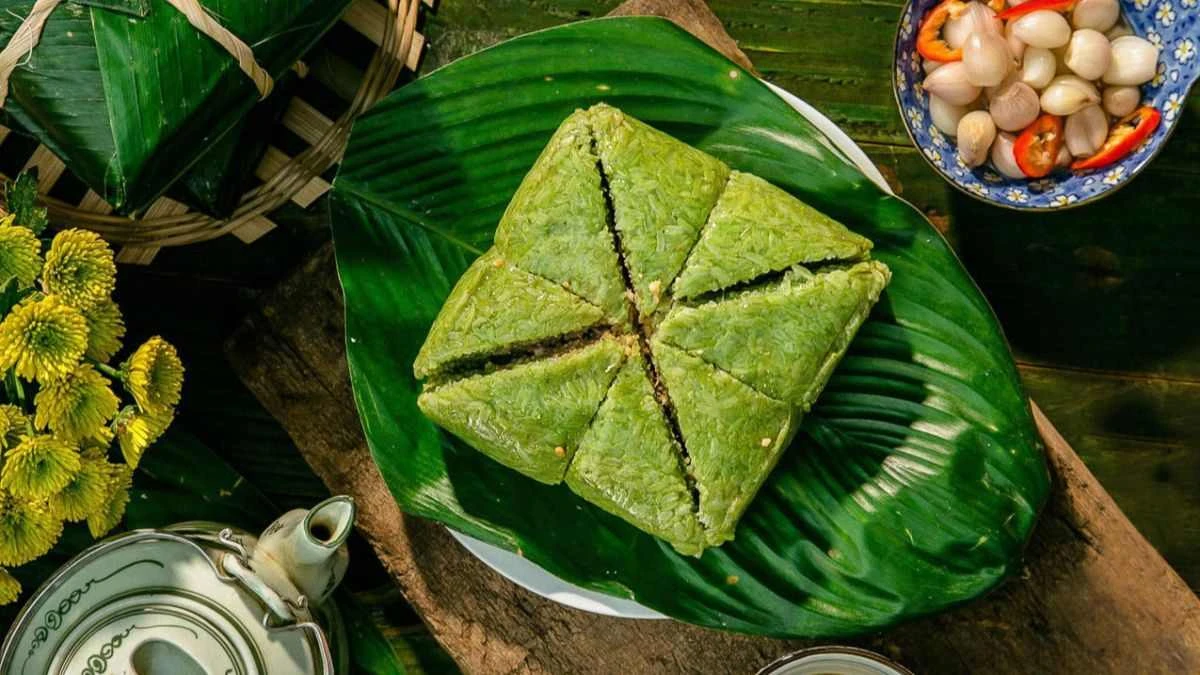
“Bánh chưng”
Xoi Gac: Red sticky rice, with its color representing luck and happiness.
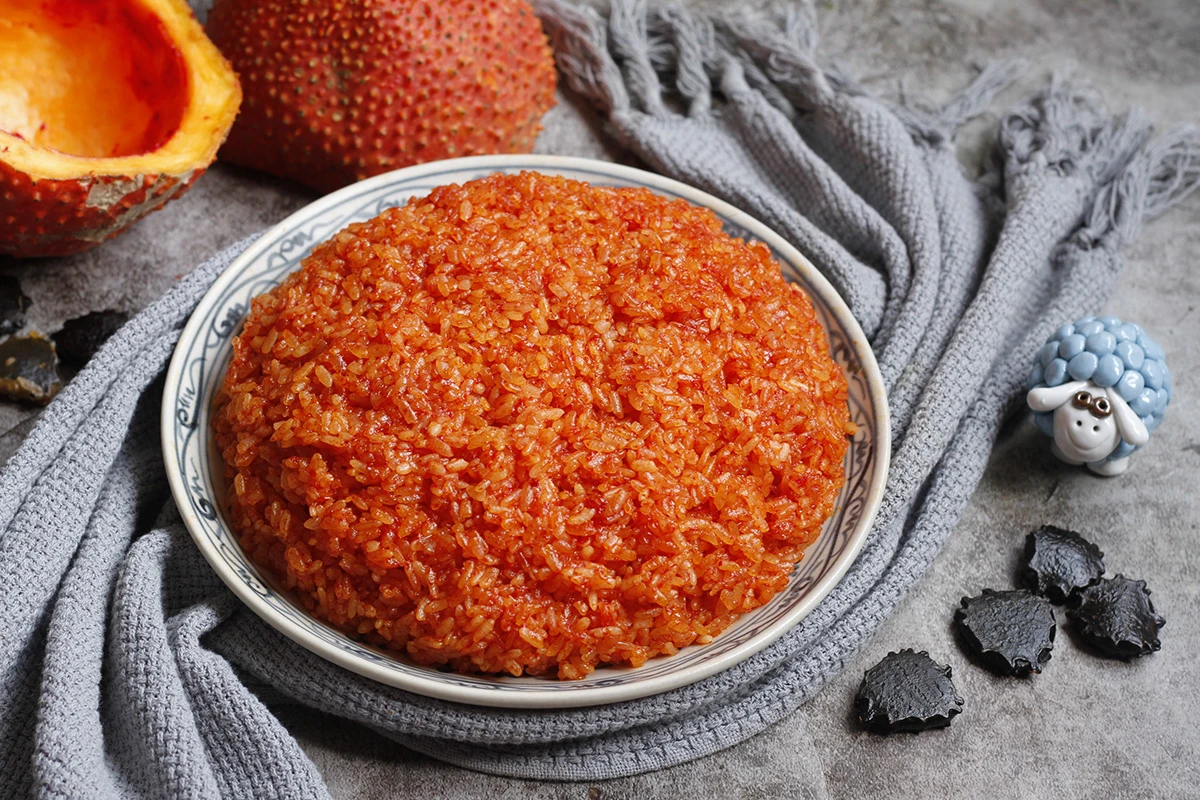
“Giò lụa”
Vietnamese Pork Roll (giò lụa): Symbolizes harmony and abundance.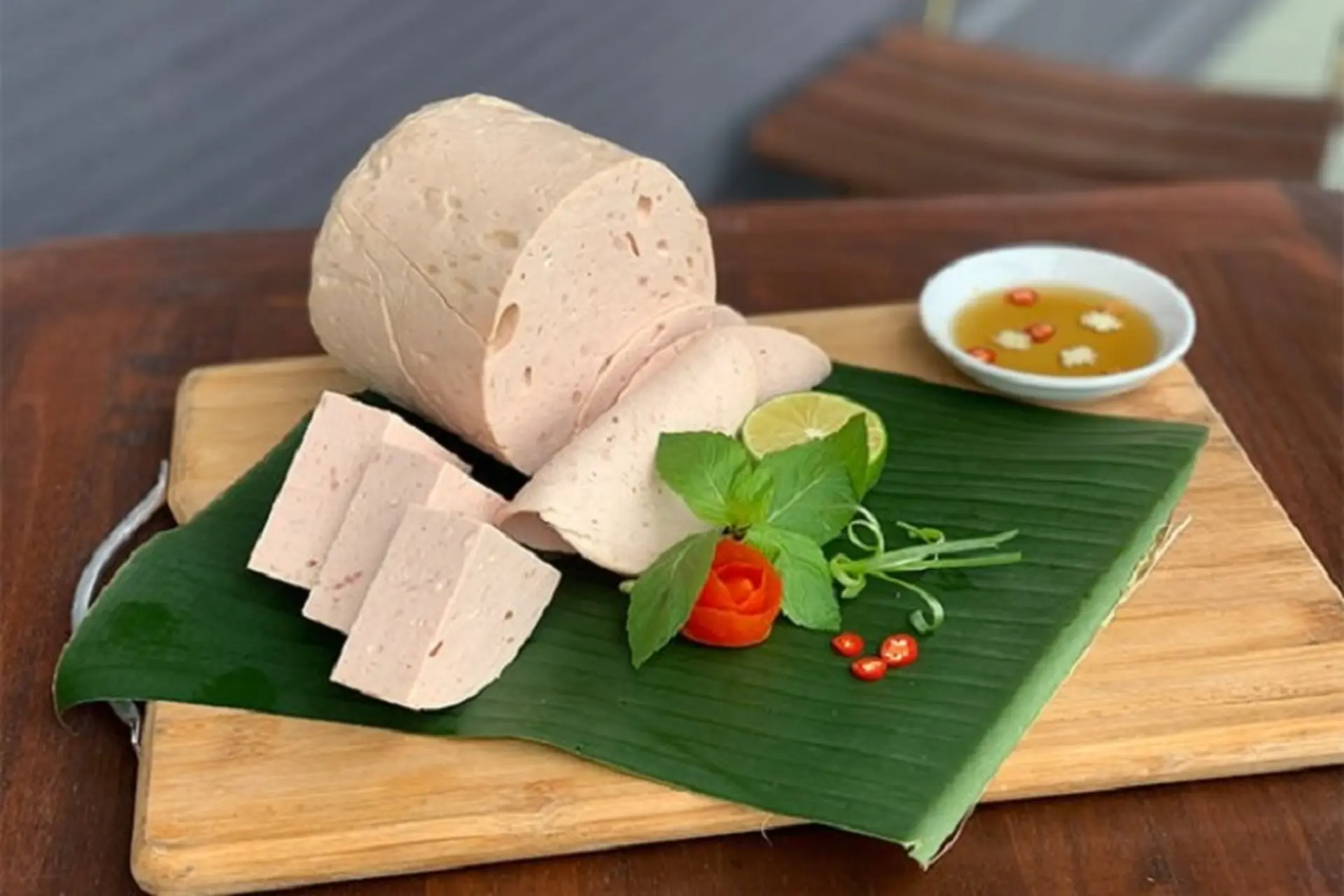
Dried Bamboo Shoot Soup (canh măng): A traditional dish reflecting ancestral culinary practices.
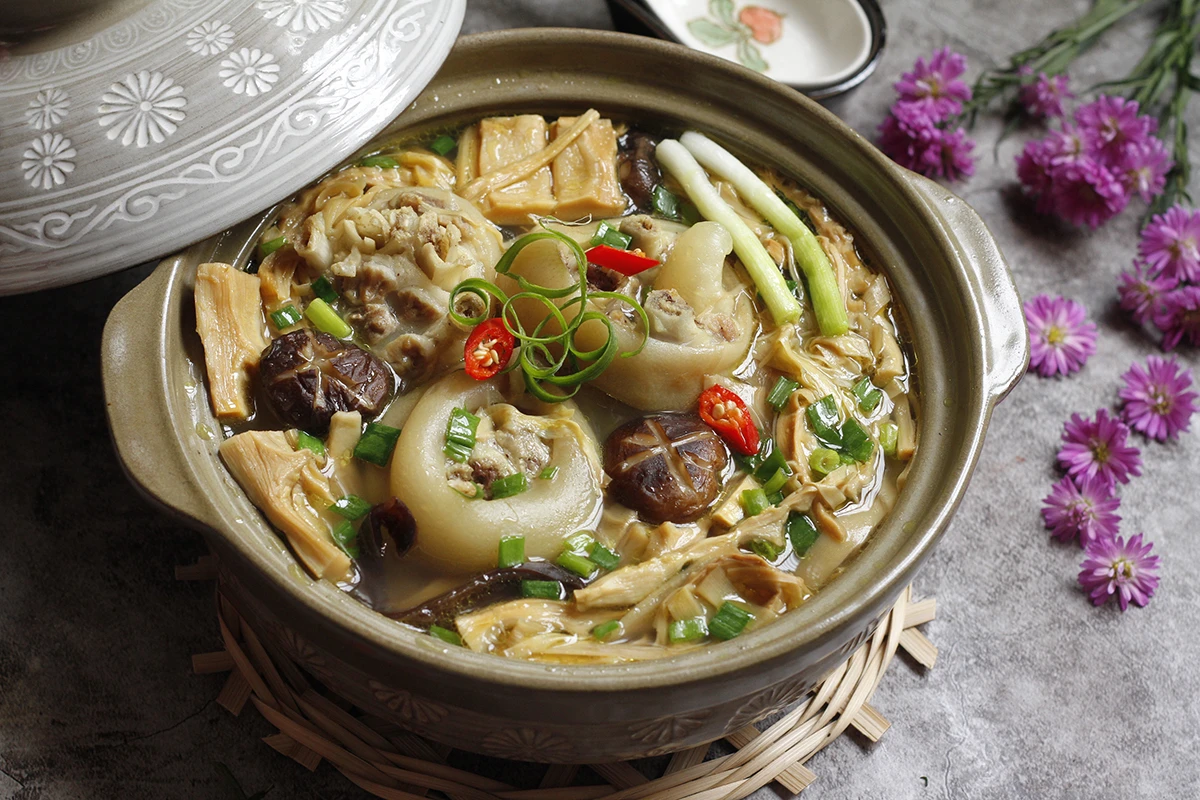
“Canh măng”
2. Tet Holiday food in the Central Region
- Banh Tet: Similar to bánh chưng but cylindrical, symbolizing fullness.
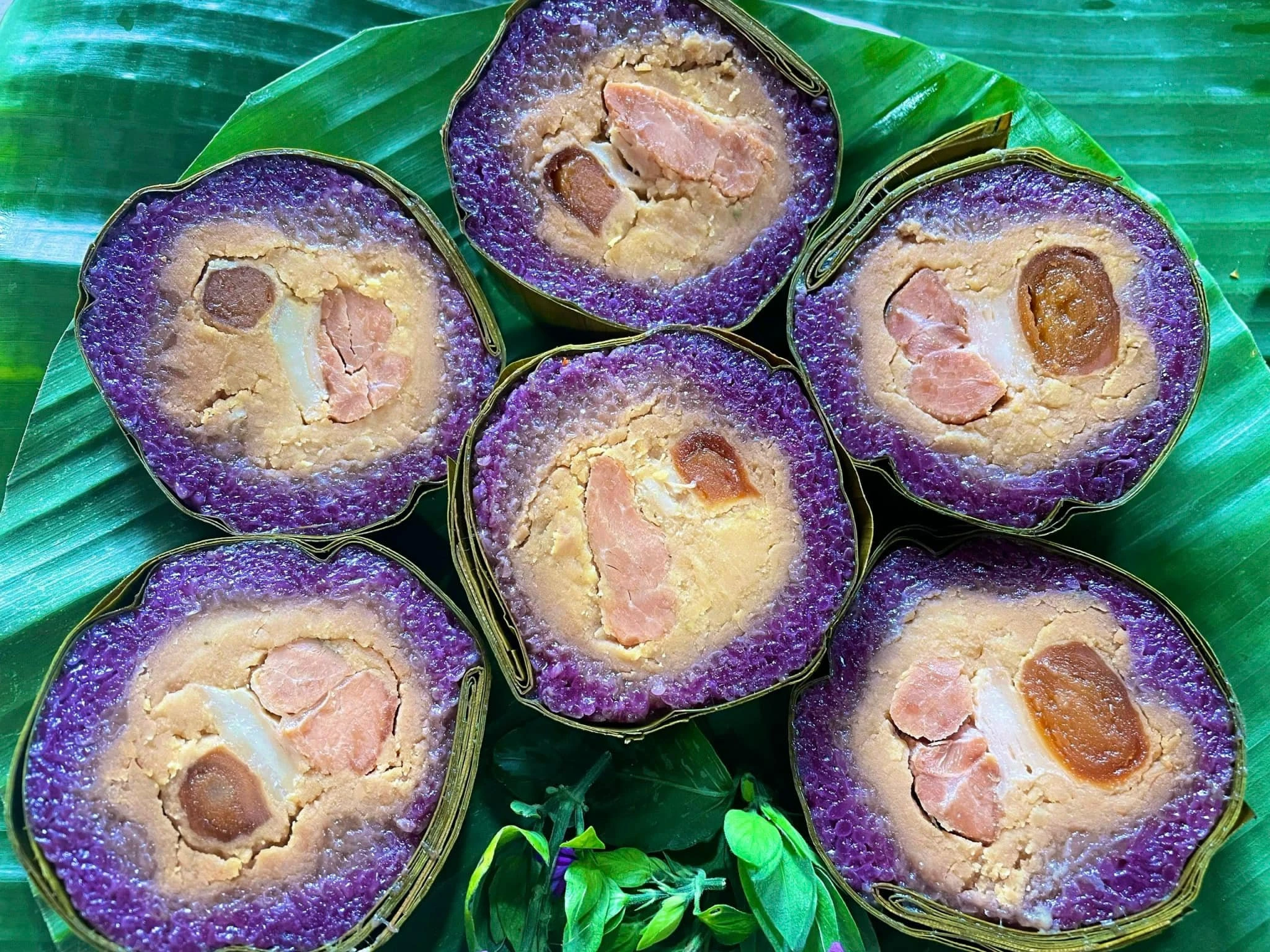
“Bánh tét”
Pickled Vegetables (dưa món): A sweet and sour side dish often eaten with bánh tét.
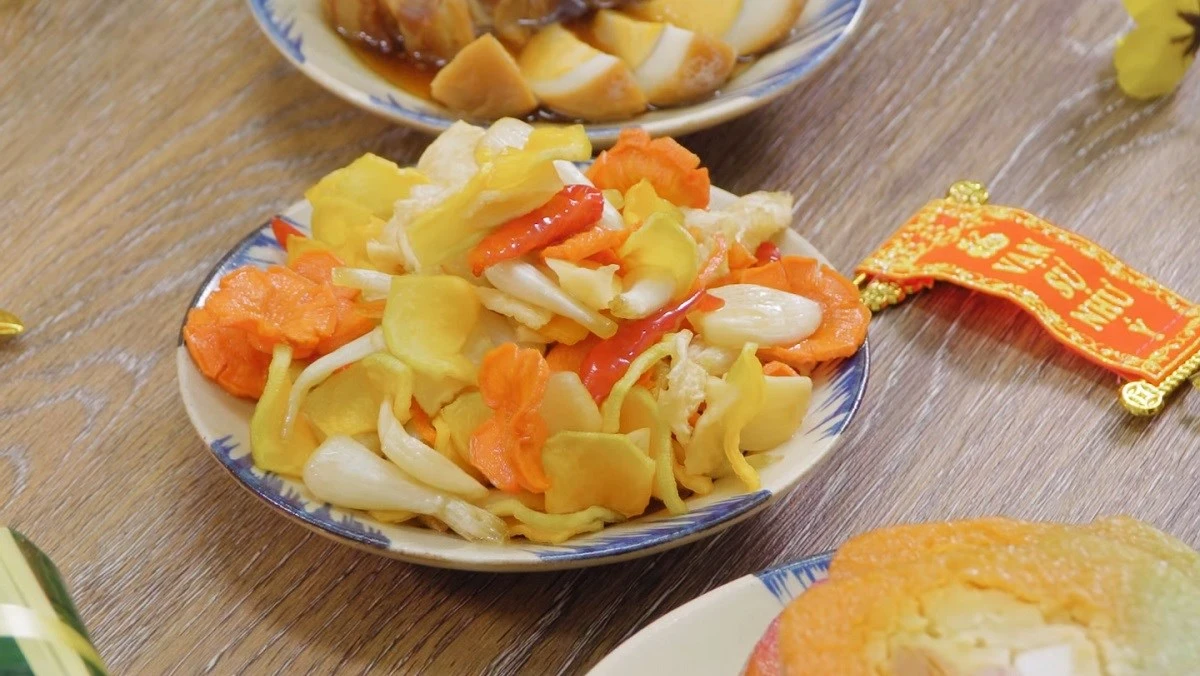
“Dưa món”
Meat Marinated in Fish Sauce (thịt ngâm nước mắm): A popular savory dish.
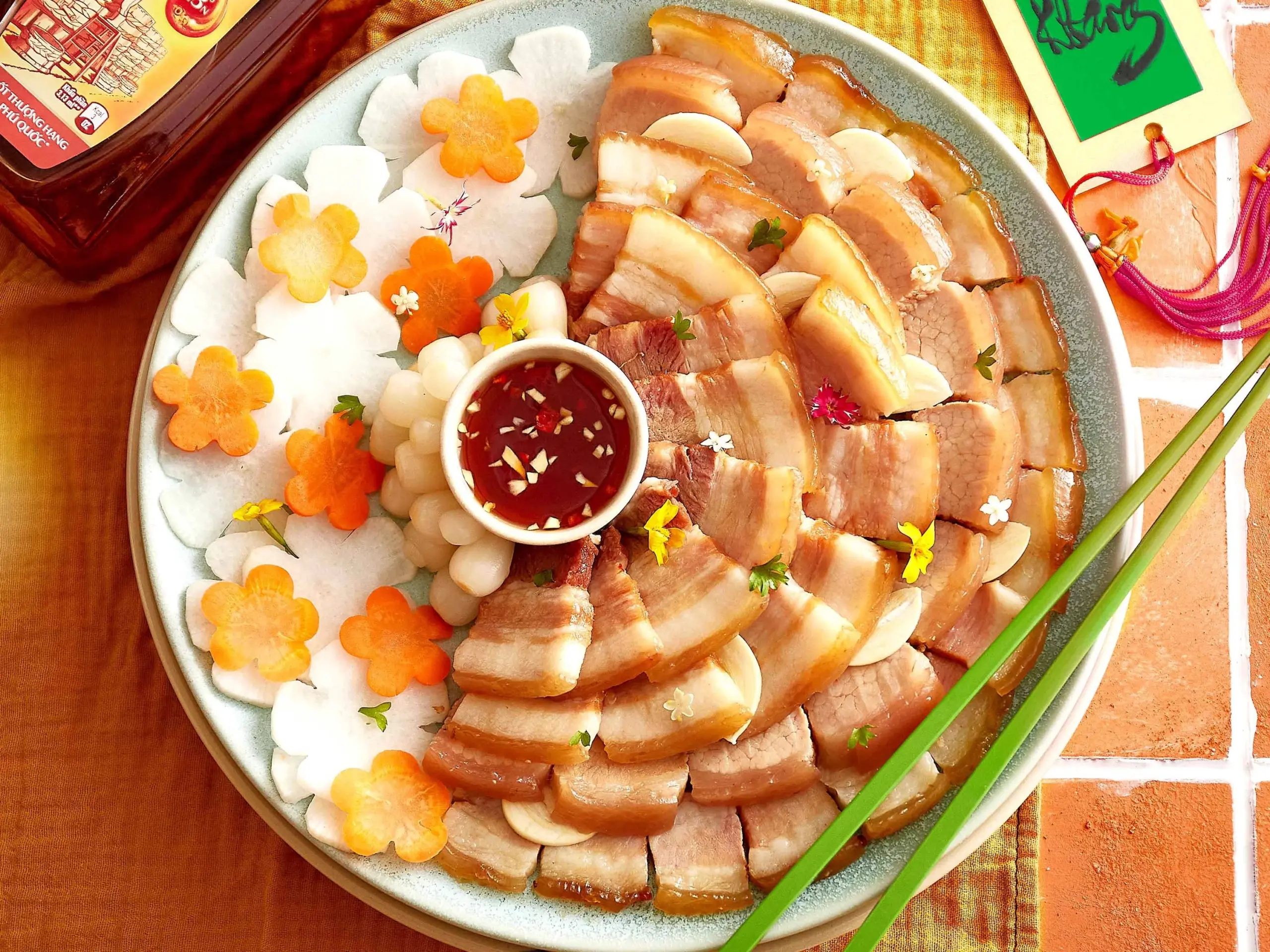
“Thịt ngâm nước mắm”
Vietnamese Beef Roll: (chả bò) A beautifully red-pink roll often found on the table.
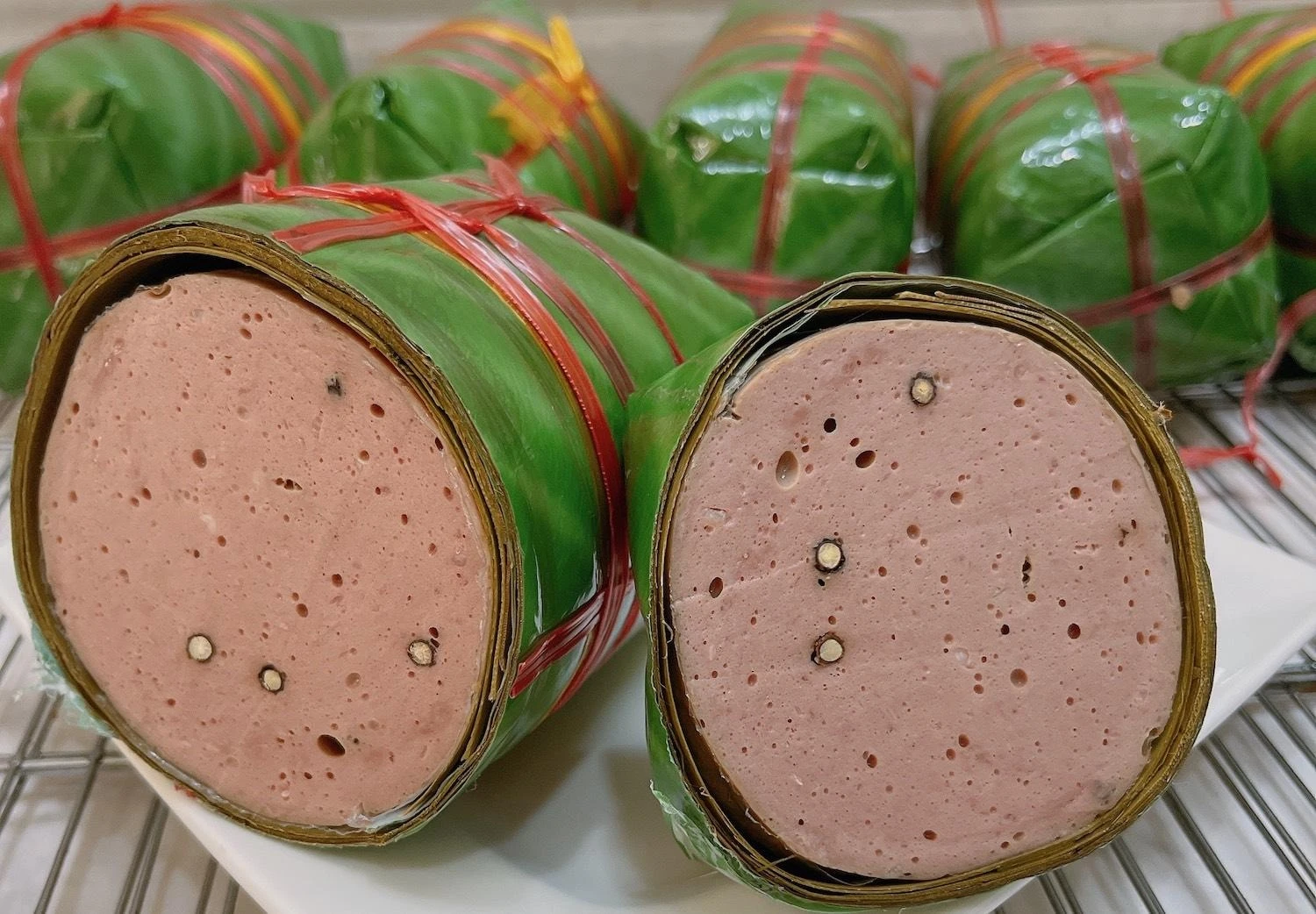
“Chả bò”
3. Tet Holiday food in the South
Vietnamese Braised Pork Belly (thịt kho hột vịt): A large pot signifies prosperity and family togetherness.
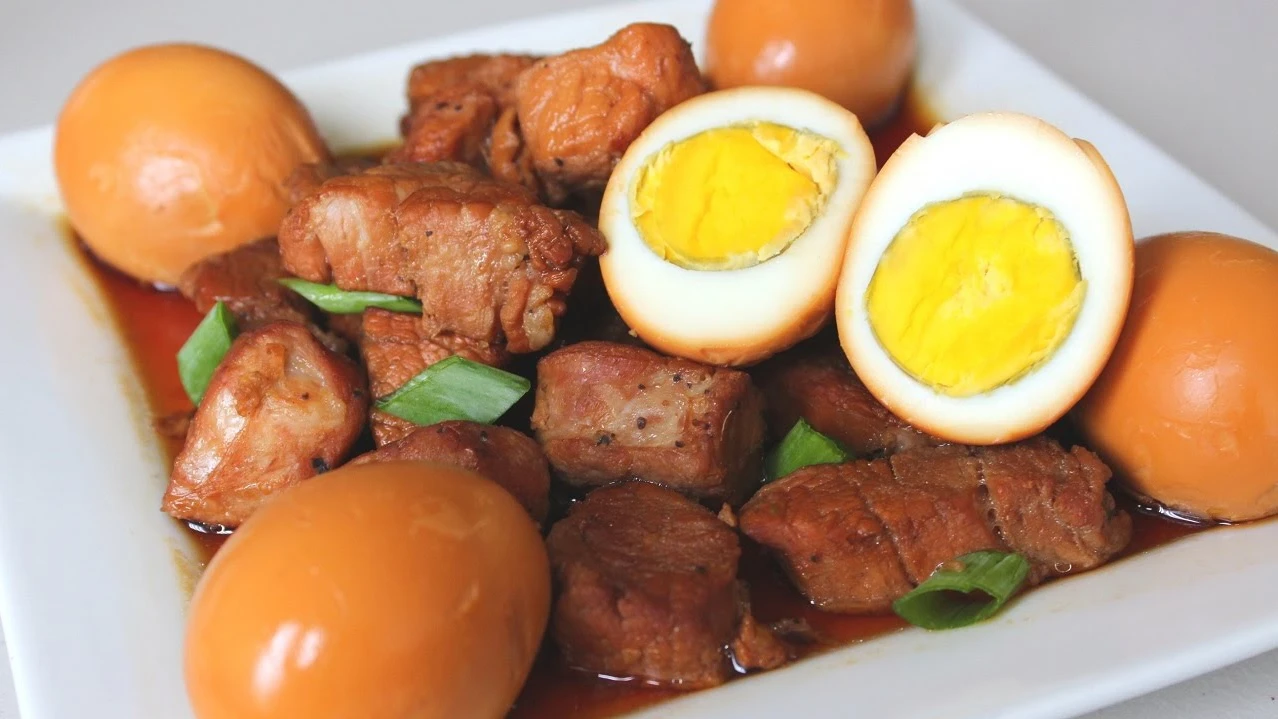
“Thịt kho hột vịt”
Stuffed Bitter Melon Soup (canh khổ qua): Symbolizes passing difficulties and welcoming good fortune.
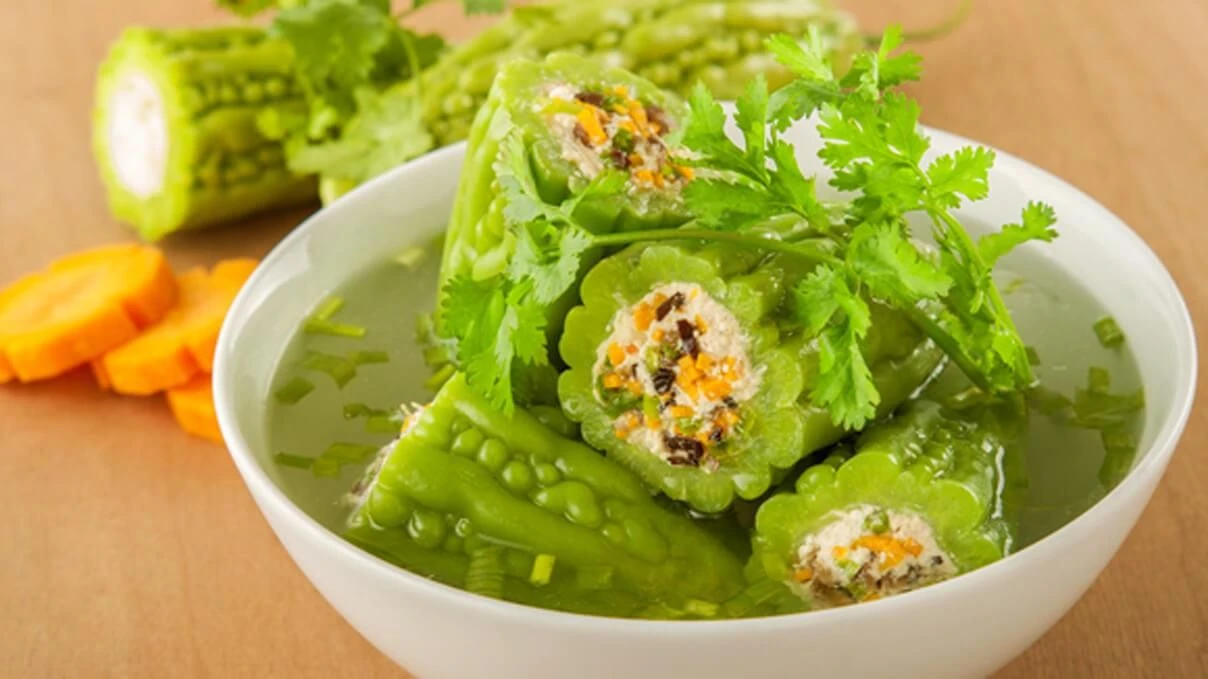
“Canh khổ qua”
Chinese Sausage (lạp xưởng): A popular and versatile dish known for its fragrant taste.
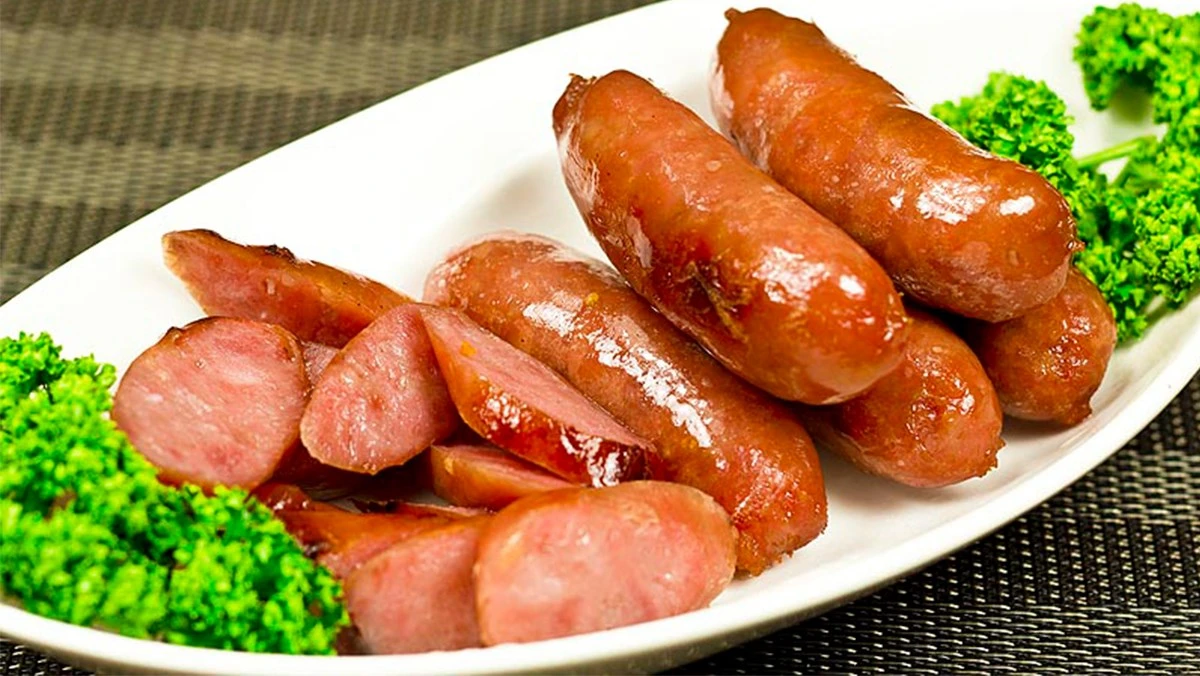
“Lạp xưởng”
What are the not-to-be-missed plants and flowers during Tet?
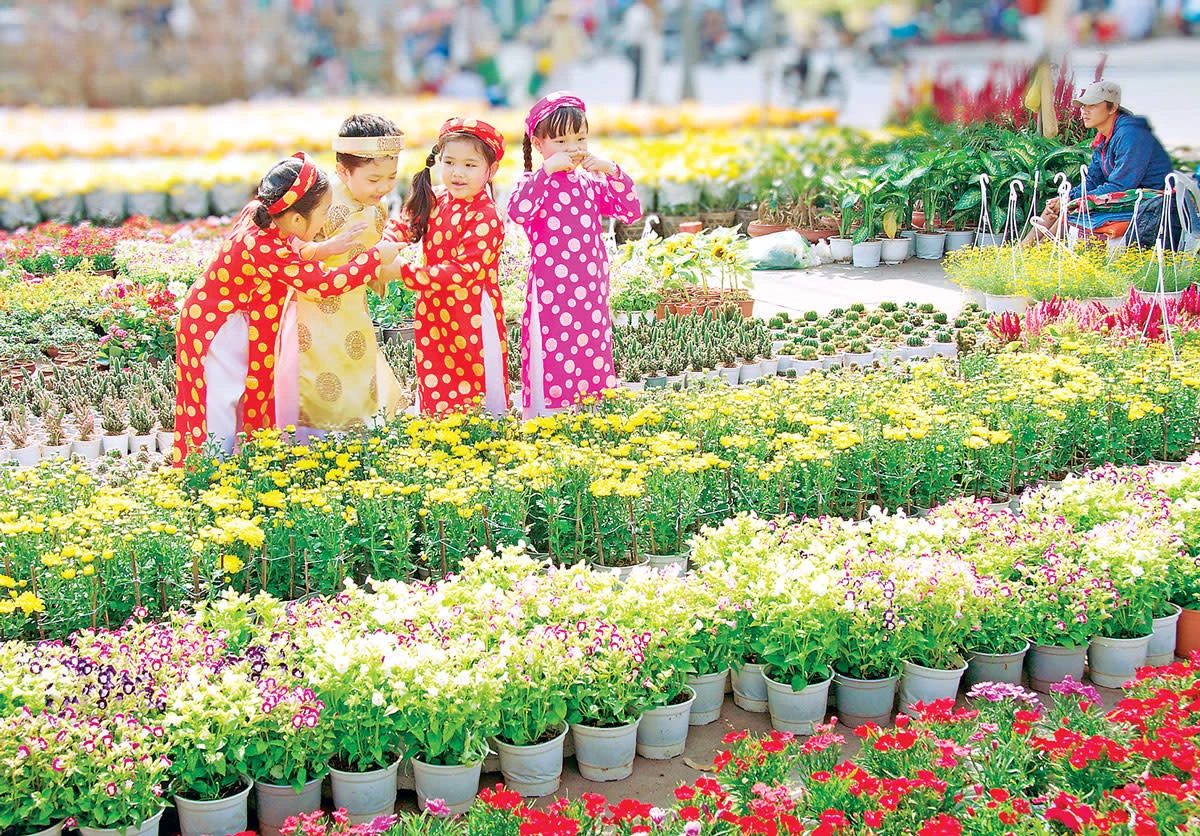
Decorating with flowers and plants is a tradition to bring vitality and joy to the home.
Flowers for Tet Holiday
Peach Blossoms (hoa đào): Emblematic of Tet in the North, symbolizing growth and prosperity.
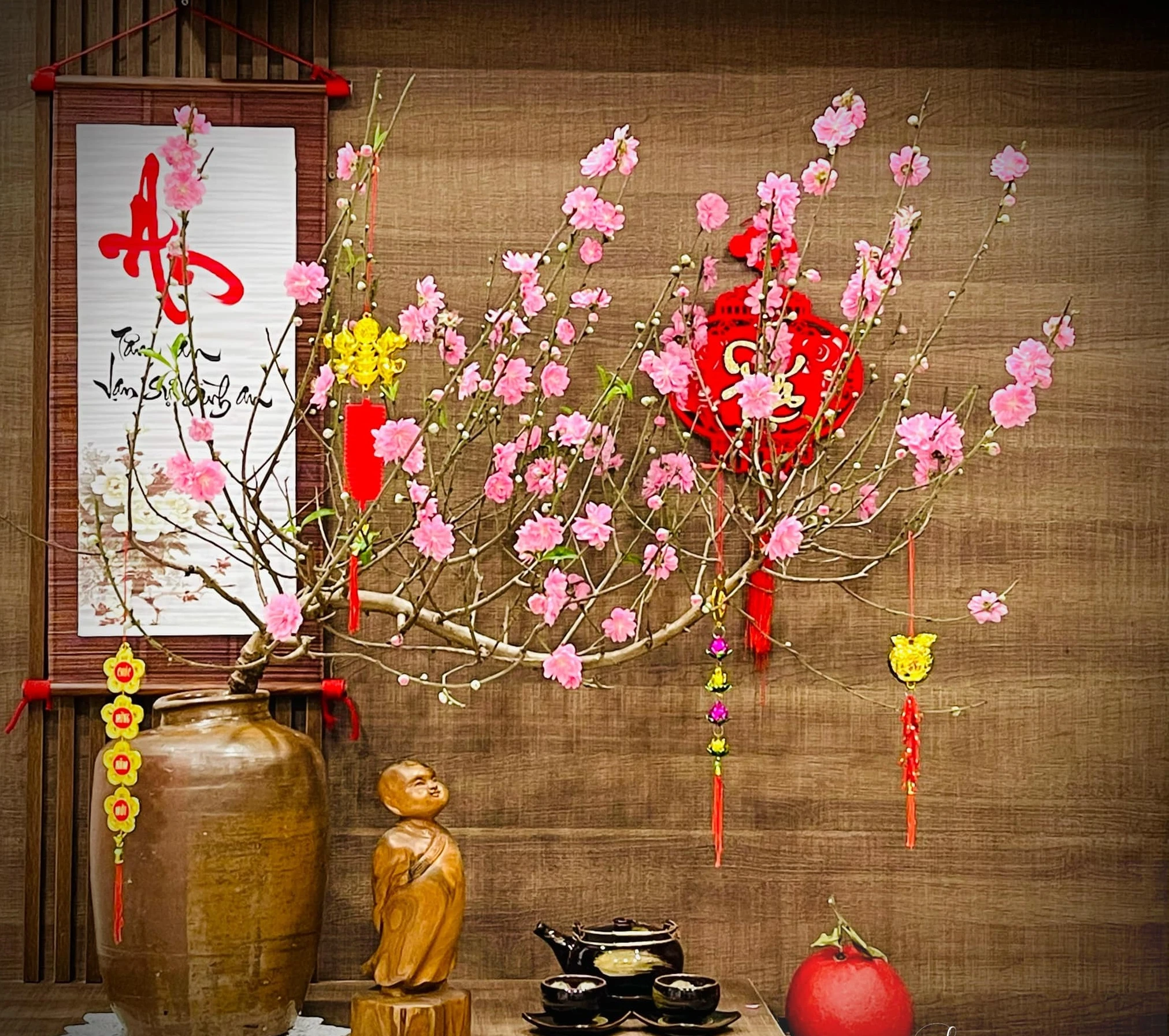
“Hoa Đào”
Yellow Apricot Blossoms (hoa mai): A symbol of Tet in the South, representing luck and wealth.

“Hoa Mai”
Chrysanthemums (hoa cúc): Symbolize longevity and are believed to attract good luck.
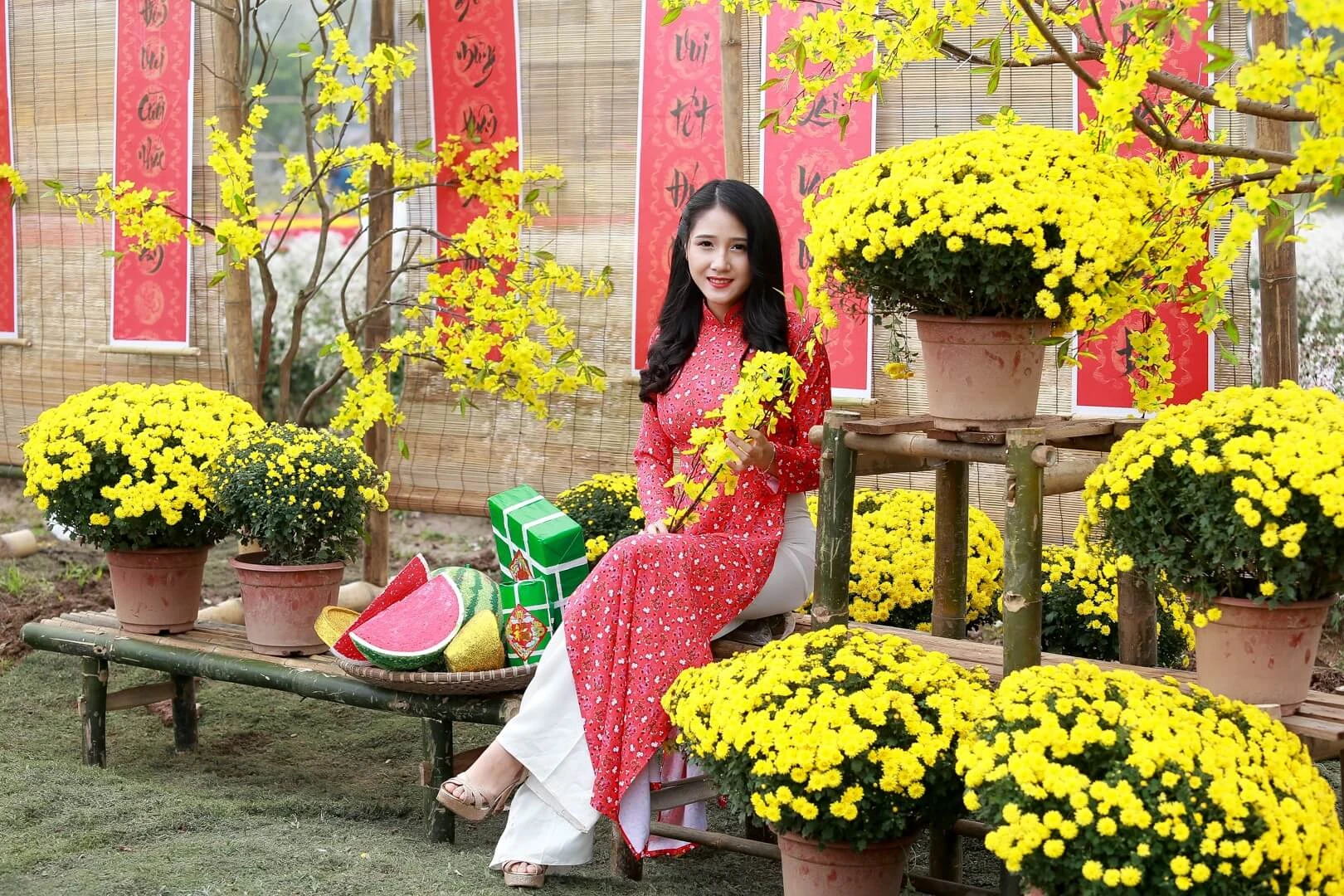
“Hoa Cúc”
Kumquat Trees (cây quất): With their green leaves and yellow fruits, these trees symbolize luck, peace, and prosperity.
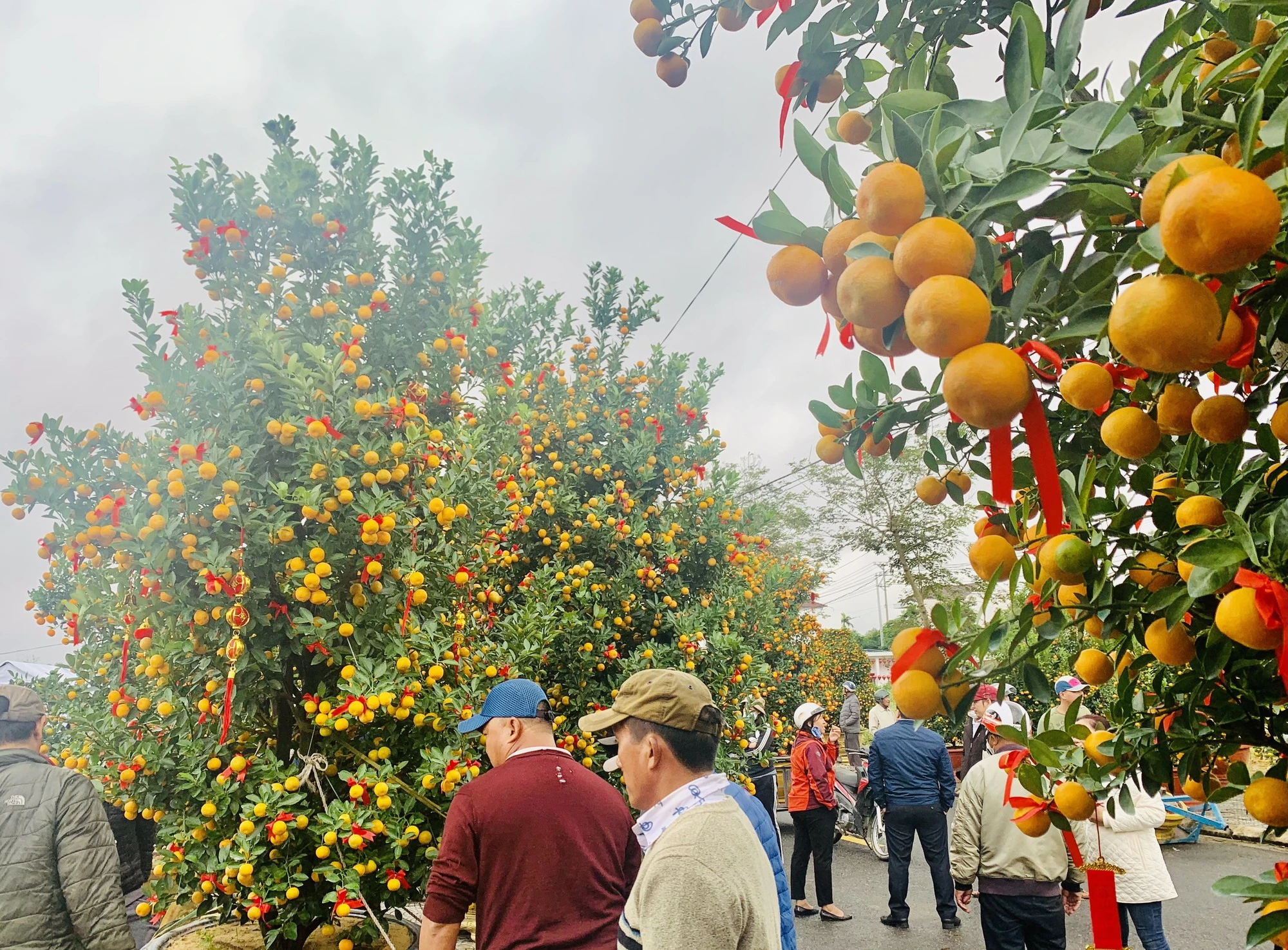
“Cây Quất”
What are the important Tet Holiday traditions and customs?
The cultural significance of Tet is celebrated through cherished customs.
1. Ancestor worship
During Tet, families perform rituals to invite the spirits of their ancestors to join the celebration. The ancestral altar is meticulously cleaned and decorated with food, flowers, and a five-fruit tray to show deep respect and pray for a peaceful new year.
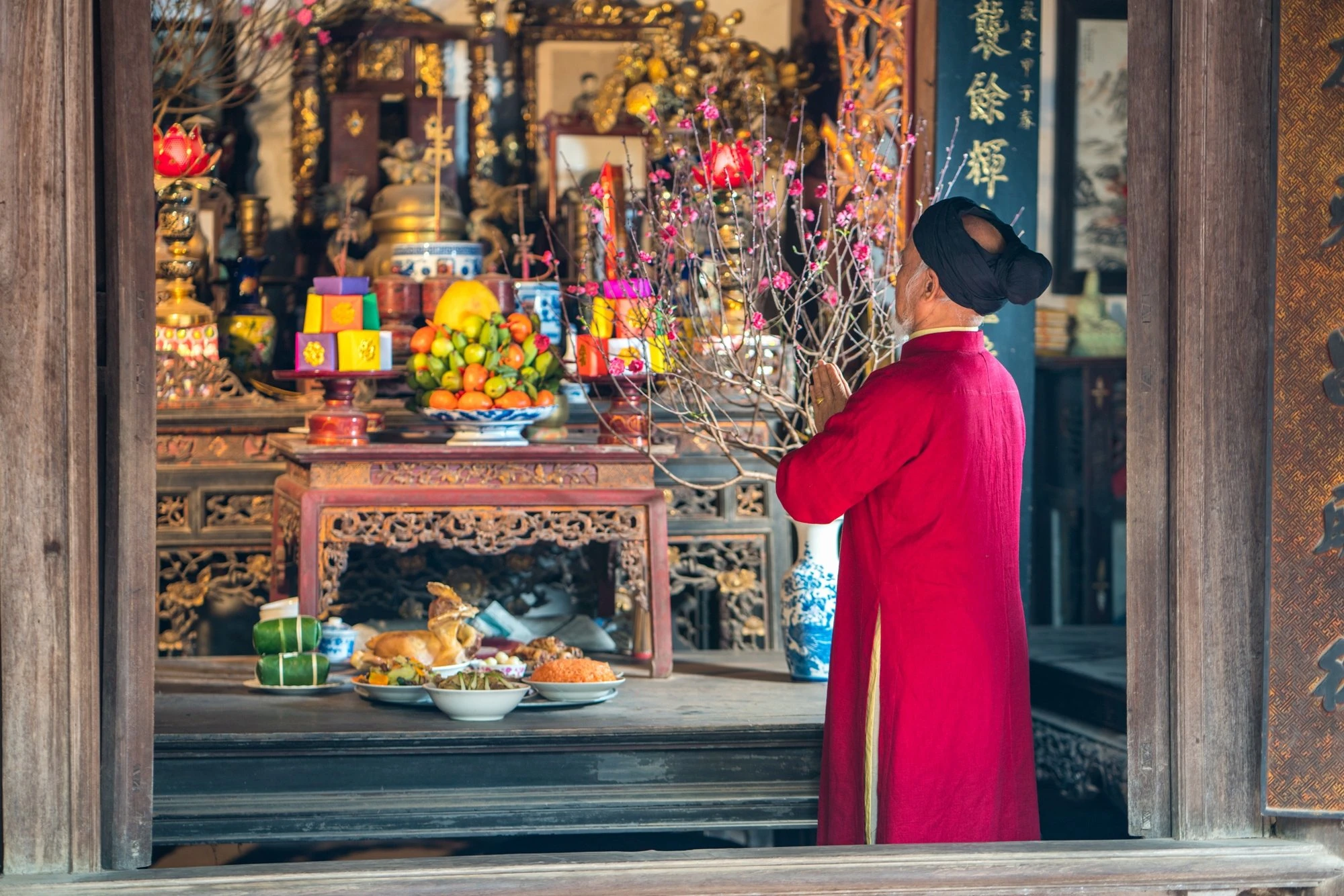
2. Paying respects to elders
Tet is a time for family reunions and showing respect. Children and grandchildren wish their grandparents and parents longevity, good health, and peace, highlighting the treasured tradition of “respecting the elders.”
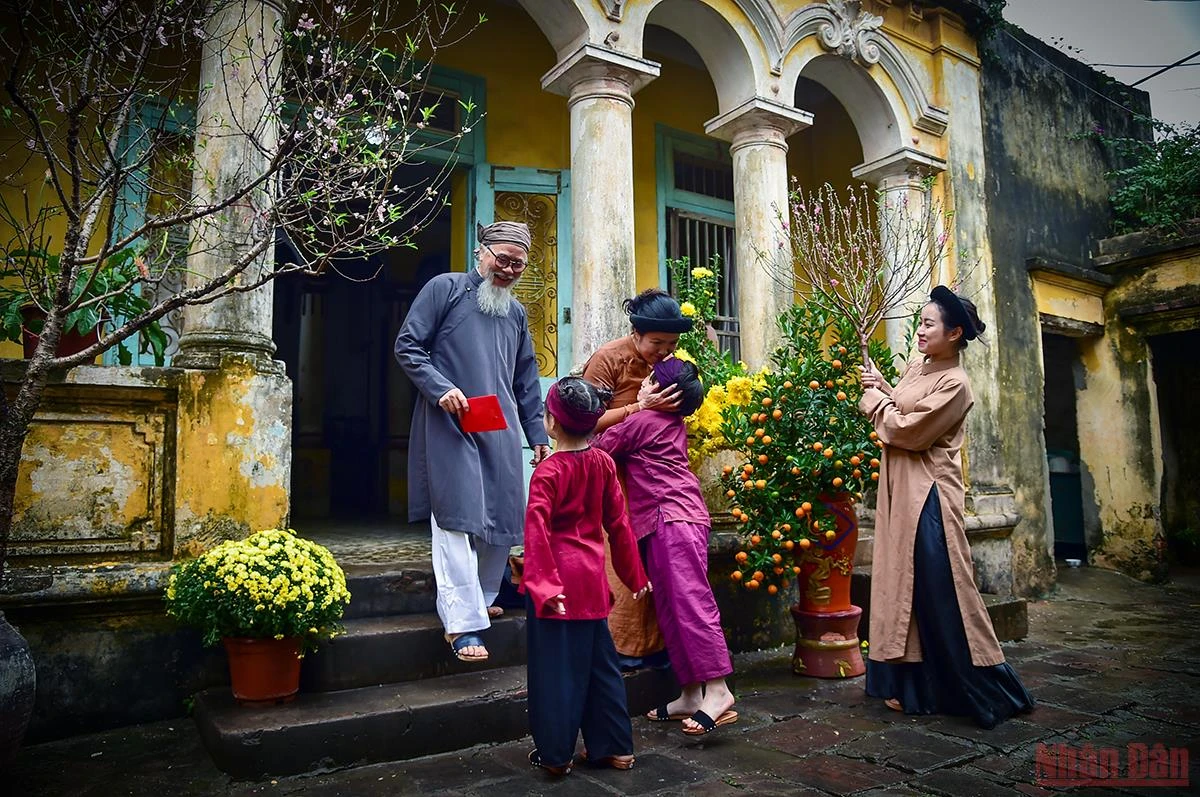
3. Giving and receiving red envelopes (Lì Xì)
Adults give Lì Xì, small red envelopes containing lucky money, to children to wish them well in the new year. The elderly also receive Lì Xì as a wish for longevity. This beautiful tradition symbolizes the hope that good fortune will come from the very first days of the year.
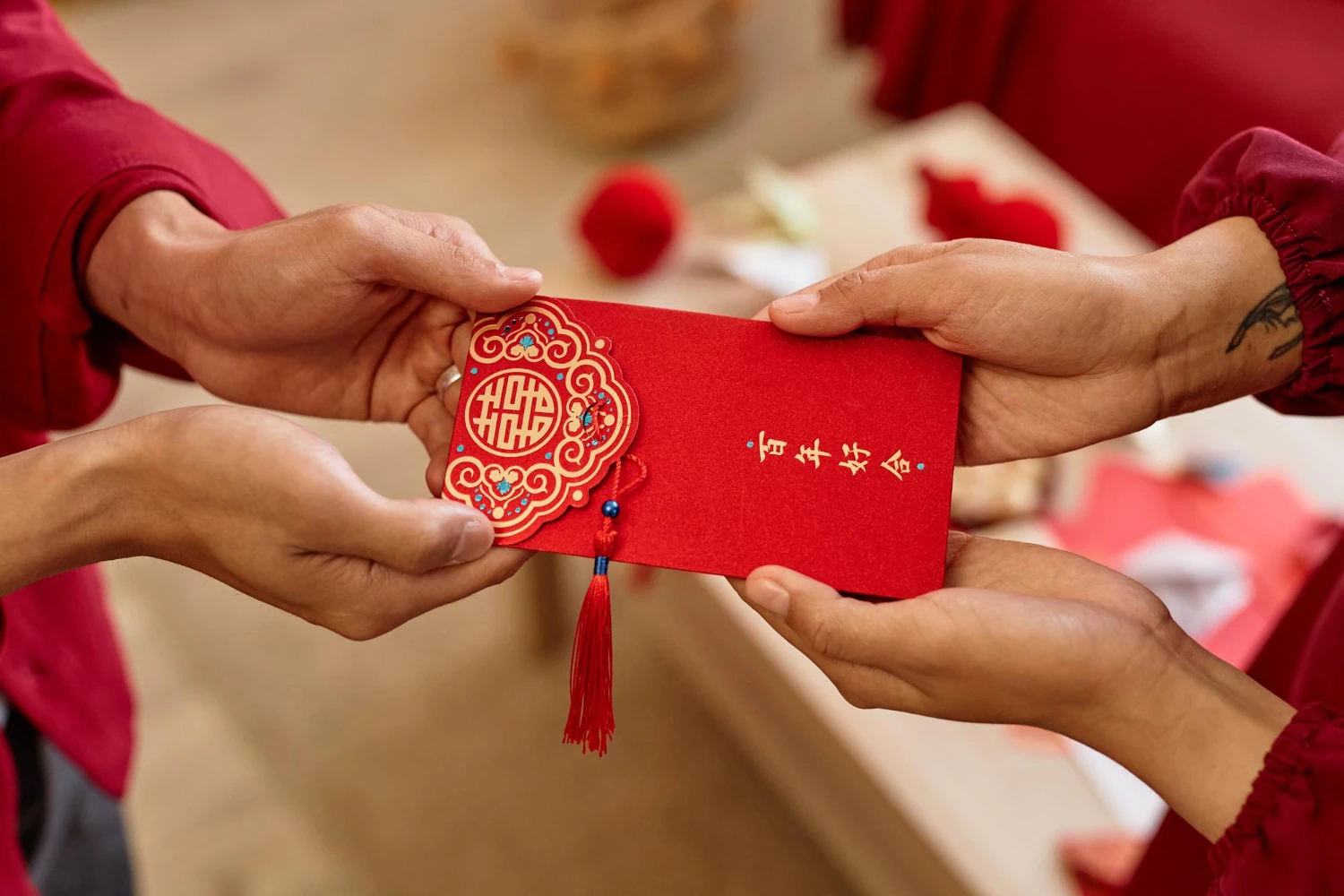
What are the most common celebration activities on Tet Holiday?
During Tet, many exciting activities take place across the country.
Cultural Festivals: Numerous traditional festivals are held, such as the Perfume Pagoda Festival in Hanoi and the Dong Da Festival, where people pray for peace and happiness.
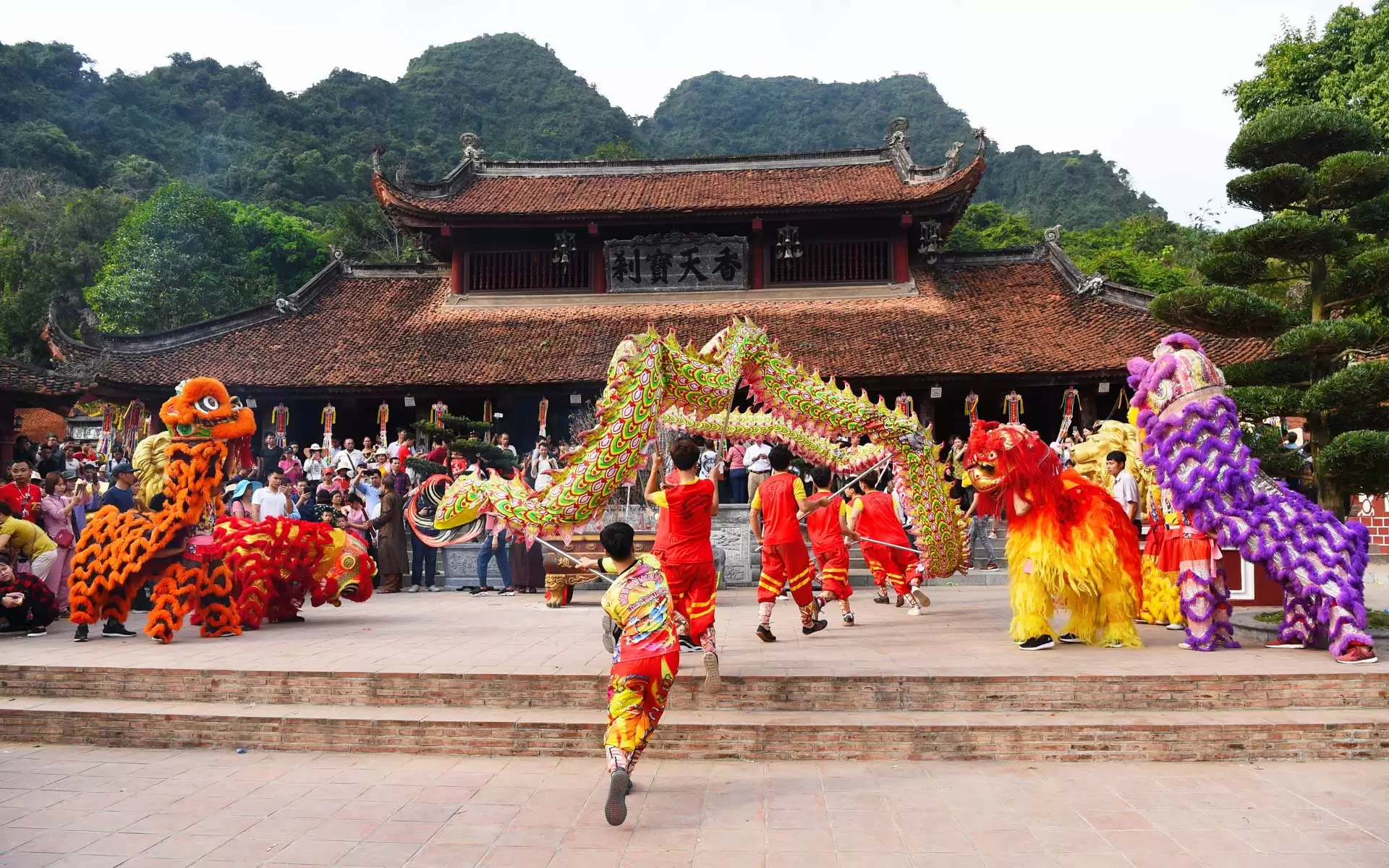
“Perfume Pagoda Festival”
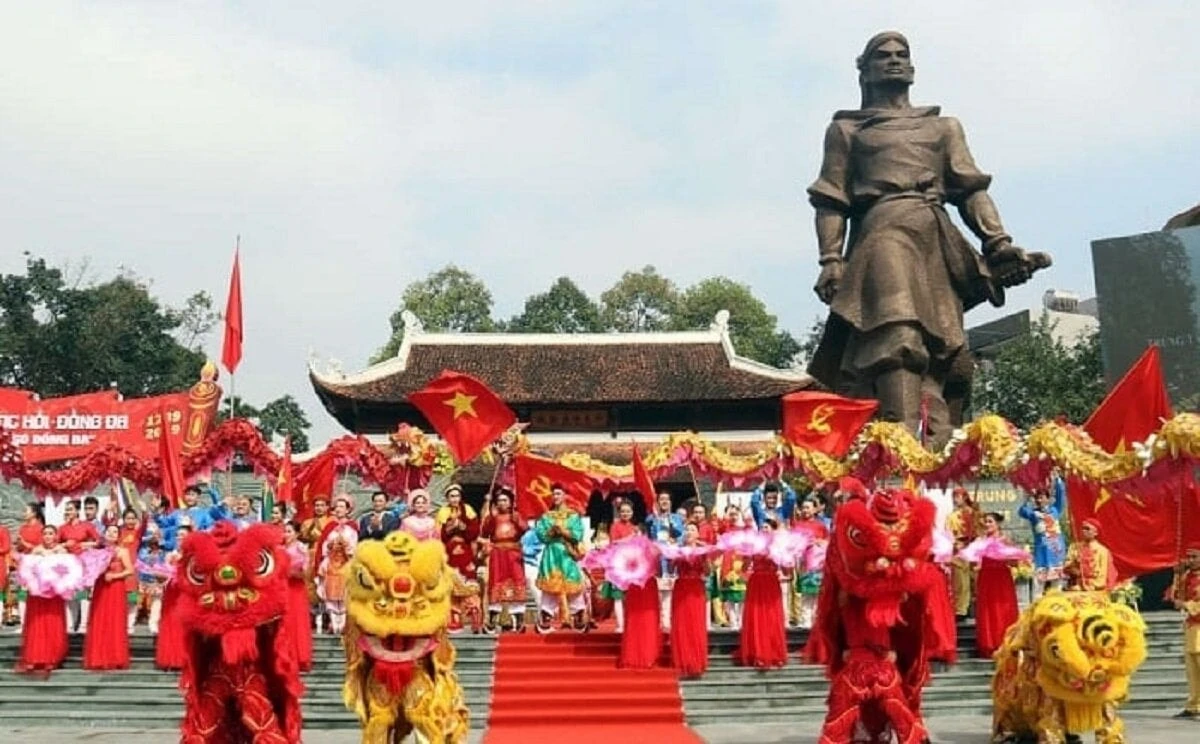
“Dong Da Festival”
Fireworks Displays: On New Year’s Eve, cities across Vietnam light up with spectacular fireworks displays to ward off evil spirits and welcome a lucky new year.
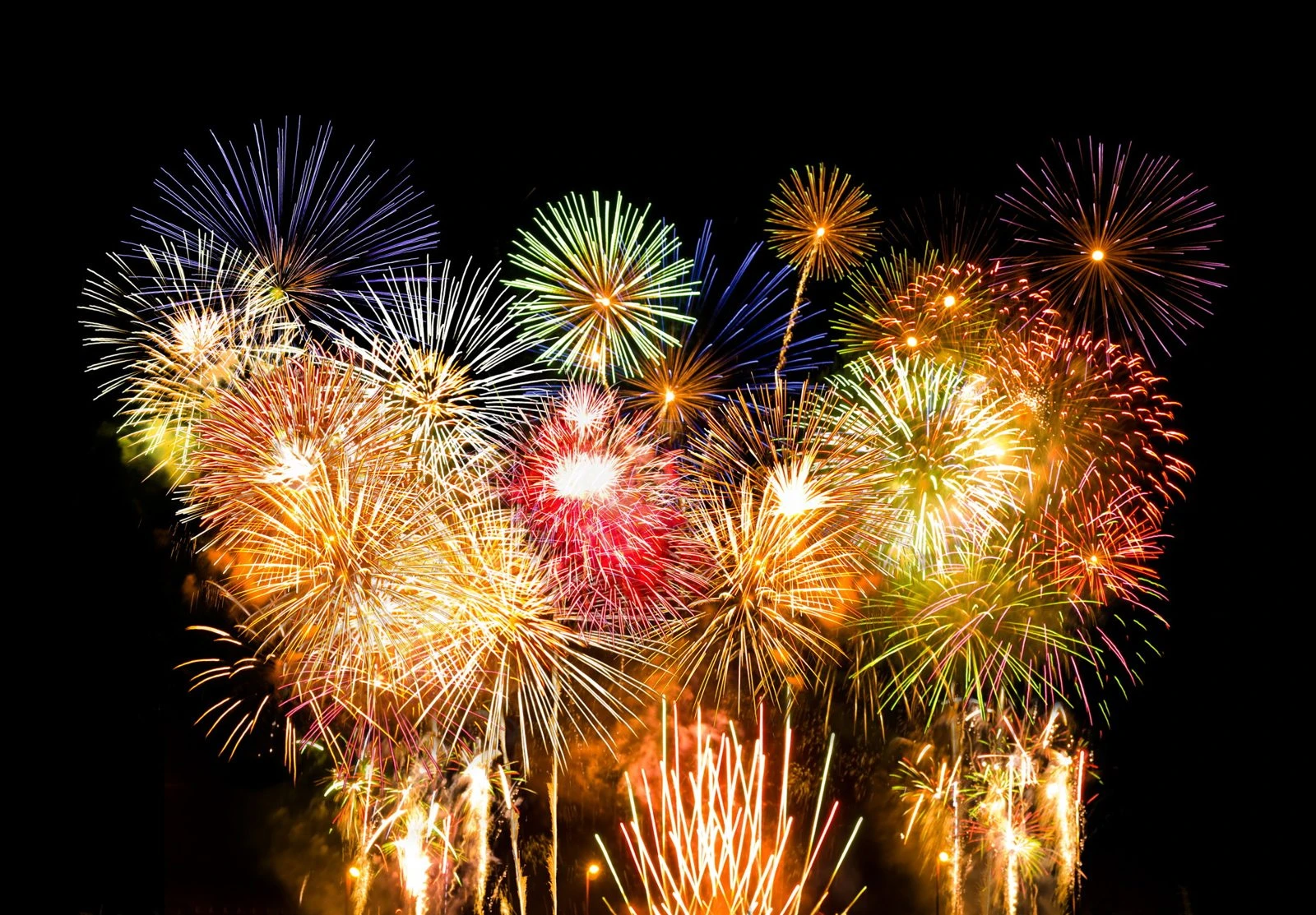
Lion and Dragon Dances: These vibrant performances are common at temples and public spaces, symbolizing hopes for luck, success, and good fortune.
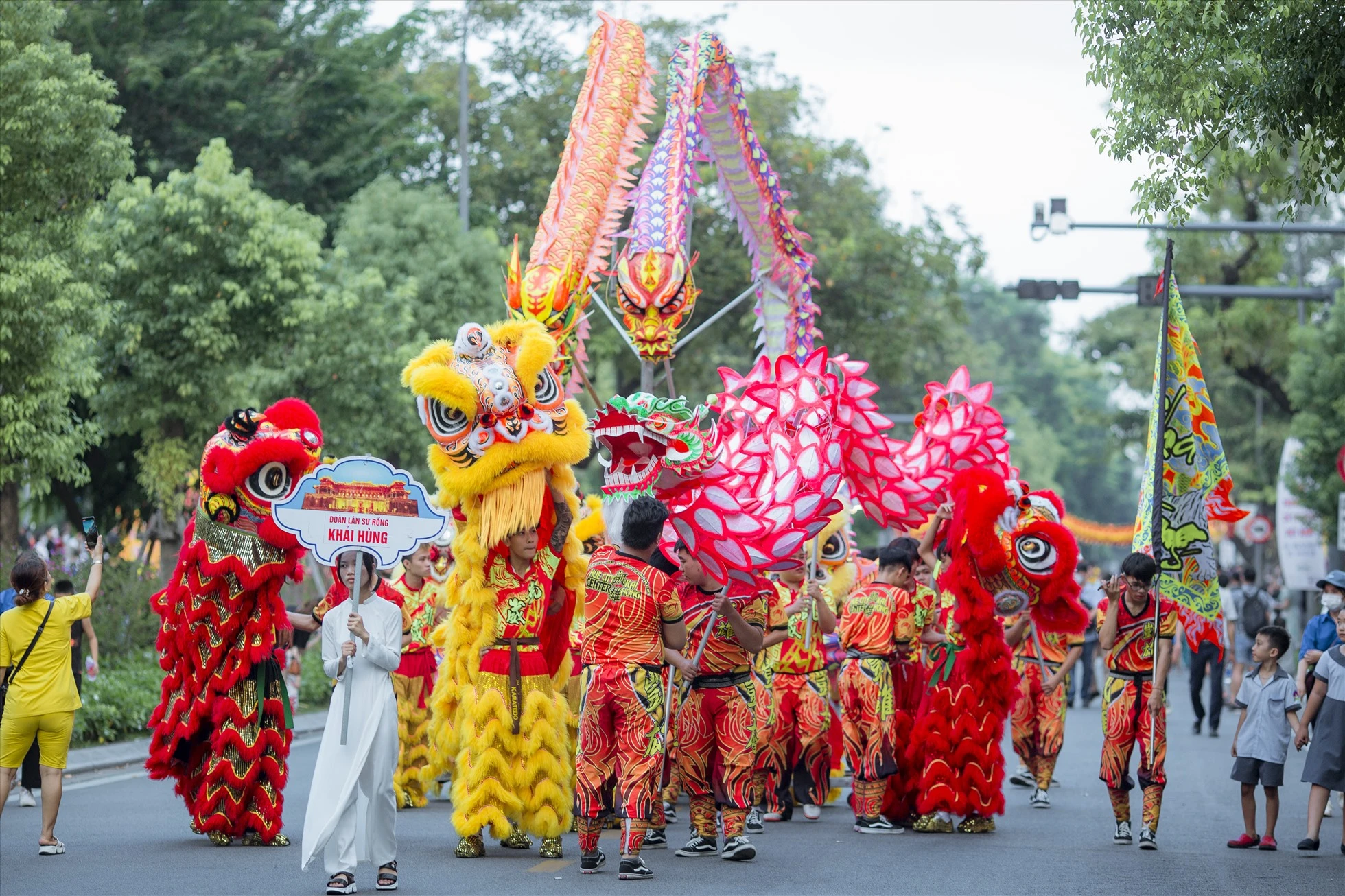
Visiting Pagodas: In the first days of the new year, many Vietnamese people visit pagodas and temples to pray for health, happiness, and good luck for their families.
Chùa Bãi Đính – Ninh Bình
What are some travel tips for experiencing Tet Holiday in Vietnam?
To fully enjoy the Vietnamese Tet holiday, consider these tips.
1. Best places to celebrate Tet
For a memorable trip, visit major cities like Hanoi, Ho Chi Minh City, Hoi An, Da Nang, and Hue. Here, you can savor delicious Tet dishes, admire festive decorations, and participate in unique cultural festivals.
2. Accommodations and transportation
Transportation is often crowded during Tet. It’s highly recommended to book your flights, trains, and buses well in advance to avoid shortages and secure better prices.
3. Best Tet Holiday wishes for your beloved Vietnamese
If you want to say “Happy New Year” in Vietnamese, here are some common wishes:
- Chúc Mừng Năm Mới: Happy New Year.
- An Khang Thịnh Vượng: We wish you prosperity.
- Vạn Sự Như Ý: May all your wishes come true.
- Sức Khỏe Dồi Dào: We wish you good health.
- Sống Lâu Trăm Tuổi: We wish you longevity (for elders).
Your Unforgettable Tet Holiday Awaits
From sacred ancestor worship and heartwarming family reunions to streets filled with vibrant flowers and lion dances, the Tet holiday is more than just a celebration—it’s the very soul of Vietnamese culture. It is a time of renewal, gratitude, and hope, offering a unique glimpse into the cherished traditions that have shaped Vietnam for centuries. Whether you’re sharing bánh chưng with a local family or simply soaking in the festive energy, experiencing Tet in Vietnam is a truly special journey. Let us help you be a part of this incredible celebration.
Source: Tet Holiday: Guide to understand the heart of Vietnamese traditions
